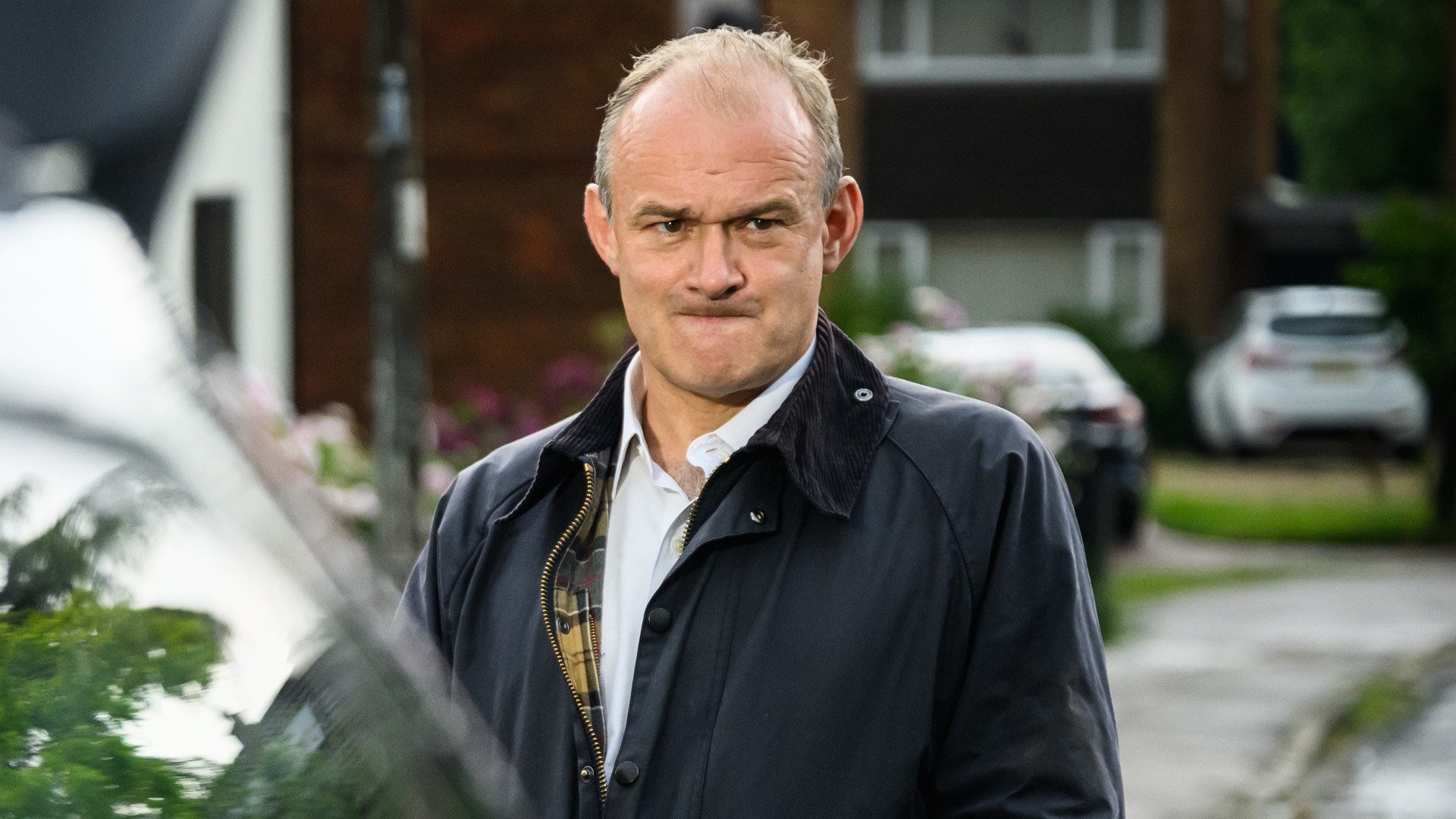Re: “The silent majority must be heard”, (TNE #354). One of the main reasons I joined the Liberal Democrat Party was because it was very much in favour of the European Union. I was a teacher in the European School in Brussels for 14 years, and had students from many European countries. Many of my students and several teachers joined me in the anti-Brexit march on September 9, 2017.
In Parliament Square that day, the Lib Dem MP Ed Davey said his emotions had shifted from “anger to distress, from fury to despair” and then to embarrassment at the Brexit negotiations. He said: “We need to be a unifying force and that means we need to listen to the other side. We need to understand where they come from and listen in a way that heals the wounds and reunites our country.”
Sadly, Davey is now trying to sit on the fence when he should acknowledge that Brexit has been a disaster. Now is the time for boldness and decisiveness. If the Liberal Democrats become the party of rejoin, their vote in one-nation Tory constituencies will soar. Numerous Lib Dem members like me are disillusioned by the current stance.
Come on, Ed. Do what Paddy Ashdown would have done. Campaign to Rejoin.
David Hogg
Bristol, Avon
In her tour de force on the failings of Brexit, Patience Wheatcroft says the opposition parties fail to call out the government “by stating the obvious: the UK would be better off in the EU”.
She names only Labour and the LibDems as the opposition, ignoring the fact that the third-largest party at Westminster is the SNP, a party that openly, enthusiastically and frequently articulates its commitment to EU membership, and, with frequency, holds the Tory government to account. Hardly a week passes without the SNP’s leader at Westminster, Stephen Flynn, raising the failures of Brexit at prime minister’s questions.
TNE has recently introduced Carousel, snapshot sketches of aspects of life in other European countries. It seems churlish but perhaps necessary to gently remind you that there is not only life but also an entirely distinct political culture and a predominantly pro-EU nation to the north of Islington. It’s called Scotland.
Jennifer Wilson
Milngavie, Glasgow
I wish Patience Wheatcroft was right, but the elephant in the room is not the Lib-Dems’ or Labour’s insufficient commitment to rejoin, nor even the EU’s possible new, difficult conditions for re-entry, but the prospect of a later Tory Brexit government taking Britain out again. The EU would be unlikely to welcome the UK, only to face another Brexit.
After losing in 1974 and 1997, the Tories swung to the right, and it took three big losses before they even reverted back towards the centre with Cameron, and his ambiguous stance on Europe. They are likely to stay right or swing further right, and stick with Brexit for a considerable time. Either we will wait a long time, or perhaps, if Britain later introduces PR, there will be two major parties on the right, a Brexit-believing, populist right-wing party, and a centre-right, pragmatic, pro-business party, and the likelihood of a second Brexit then marginalised.
Anthony Thacker
Hinckley, Leicestershire
The EU would never consider a half-hearted, half-in, half-out UK rejoining, and we have issues such as the pound, Schengen and budget cost that would put many off rejoining.
I suggest that the only way out of this lunacy, which actually is disadvantageous to both the UK and the EU, would be for a moratorium during which the UK holds a second referendum. This would be based on being allowed to rejoin on precisely the same terms as we had when we left but that there has to be a 60/40 majority in favour of rejoining.
That way the EU would know we were coming back as willing participants and we would know we’d had a get-out-of-jail-free card. The whole horror could then be put behind both parties. We are a different country now, with the benefit of massive buyer’s remorse.
Many will accuse me of being naive, but I think it is currently more likely that we want to rejoin more than they actually want us back, because of our previous history of constant bleating. Otherwise, we have to work out how to live with the biggest policy mistake by any western economy since 1945 – and that’s a much bigger ask.
Edward Willis Fleming
Patience Wheatcroft’s article, “The silent majority must be heard” prompts me to write a long-overdue note of thanks to the team of TNE contributors and their powerful exposures of the negative impacts of Brexit to our nations and people. The fact that no political party will speak the truth about this has left me, and no doubt all who did not accept the false Brexit arguments, with no sense of a democratic remedy.
Were it not for TNE and its journalists, the now silent majority would be left with no vent for our anger at the growing catalogue of negative Brexit-related consequences.
Nick Cole
Bude
Latest polls put rejoining the EU at 63% – surely the tipping point from which there’s no turning back. The crucial cohort of supporters are the Leave voters who have changed their minds, despite cross-party, coercive controlling Brexit politicians telling them they don’t have that right.
It’s politically immoral to force the insufferable consequences of Brexit on voters who were lied to. It’s why a second referendum is imperative.
A legitimate referendum with proper safeguards in place will prevent Brexit zealots from succeeding again. Of course they have the right to make their case again, just as we must have our right to judge and vote on it.
Jennifer Godschall Johnson
It’s frequently been noted that one factor that may have contributed to the disaster usually known as Brexit is the neat, descriptive term itself. “Brexit” rolls off the tongue, is unequivocal in its meaning, is a pleasure to say (if one can momentarily forget what it means) and is even easy to write, as there’s never any doubt about its spelling.
This unfortunate concatenation needs disrupting. I favour “Brexicide”, a neologism that more aptly captures the toxicity of that unhappy event. Could the widespread adoption of this formulation help to break the spell that is still poisoning our body politic?
Christopher Gayford
London
Bad habits
I noticed the Italian expression L’abito fa il monaco in Silvia Marchetti’s excellent article on Giorgia Meloni (Carousel, TNE #354). Have we become less perceptive since the Middle Ages, when the opposite opinion was held? Cucullus non facit monachum – literally, “the cowl does not make the monk”.
I wonder what has changed!
Paul Madge
Red navy
Nigel Warburton (Everyday Philosophy, TNE #353) comments that red admiral butterflies are found “as far north as Orkney”.
I can add that on our recent visit to Hillswick in Shetland, about 30 miles or so beyond the 60°N line, they were to be seen in their hundreds.
Alan Wood
Morden, Greater London
TNE for all!
Re: Your Michelle Mone coverage (“Stop this boat”, TNE #353). The New European should be compulsory reading for the whole country. Fearless and honest.
Clive Weaver
Off the rails
In TNE #353 Jonty Bloom wonders if Rishi Sunak’s “light at the end of the tunnel” is in fact the light of an oncoming train. In this country, it is most likely to be the light of a replacement bus service…
Tim Peacock
Select few
Mandrake’s analysis of candidate selection in certain Tory constituencies (TNE # 353) provokes many questions. In a sample of only 25 out of 353 Tory seats, the percentage declines in female and ethnic minority selections translate to very small numbers. At this very early preliminary stage, extrapolating this into an “alarming” trend in the nation overall seems a bit suspect.
The constituencies concerned are not identified; would it be surprising if one with a 90% white electorate were to choose a white candidate? If, as suggested, ethnic minority candidates are being selected for seats which the Tories are unlikely to win, could this not mean that those seats have a largely ethnic minority electorate, and are marginal to boot?
I am not a Tory and I realise that local associations in effect gave us Boris Johnson and Liz Truss, but they are entitled to select their candidate, even if these comprise “lots of young men with backgrounds in local government”. There are many competent councillors in all the main parties; who is to say that their sharp-end experience does not equip them for parliament better than, say, bankers, retired majors or party activists whose careers have not required them to appreciate other people’s points of view?
Nigel Britton
Desert sum
Oli Griffiths (Letters, TNE #353) points out the difference between our slowly evolving knowledge of the laws of physics (referred to by Brian Pollard) and our rapidly changing ability to exploit them technologically.
Years ago the efficiency of solar panels was around 16%. Now normal commercial panels are nearly 50% better at 22%, and prototypes already exist at around 47%. Some now track the sun across the sky to increase available energy.
Self-sufficiency is not a requirement in fossil fuels, so why should it be in renewable energy?
Peter Basford
Further to the debate on renewables, the government says we consume energy at a rate of 188GW, and we have around 18GW of renewable energy. So, we have 10% renewable energy, and 90% dirty fuel energy. To reach net zero, the only way is to replace all dirty fuel with renewable energy because there is no realistic way of “netting off” the amount we consume.
The 18GW of renewable energy is 45% of the 40GW typical electricity demand, and the government constantly misquotes this figure as “45% of energy”, implying we don’t have much to worry about. We do.
In 2010, a properly engineered solution to this renewable energy problem was introduced called Desertec, which offers the ability to create grids using steam turbine alternators – exactly the type of generator used by grid power stations all over the world, but this time they were powered by desert sunshine. However, since 2010 this technology has dropped out of sight.
This is because oil companies now control renewable energy globally, and every country in the world with renewable energy is building wind turbines and solar panels, which will never be sufficient.
Brian Pollard
Dating mishap
In 1870, biologist Thomas Huxley said the great tragedy of science was the slaying of a beautiful hypothesis by an ugly fact. The ugly fact in Paola Totaro’s article on the Shroud of Turin (TNE #350) is the result of the radio-carbon dating carried out in 1988. This gave the age of the sample tested as 1260 to 1390 CE. If this result stands, it cannot be the burial shroud of Christ.
Many, mostly speculative, arguments have been put forward as to why this result could be wrong. However, despite the arguments in the article, there has been no definitive result that shows that it is wrong, and wrong by around 1,000 years. Until that happens, we must accept the radio-carbon age found in 1988.
A bit like Brexit, nothing will convince believers that the shroud is not genuine. However, the arguments, against the original radio-carbon dating – that it tested material added to the shroud at a later date, or that it was somehow contaminated by other, older material – could be tested by repeating the test using a sample from near to part of the image, with measures to address all the criticisms of the original dating.
Ron Harding



